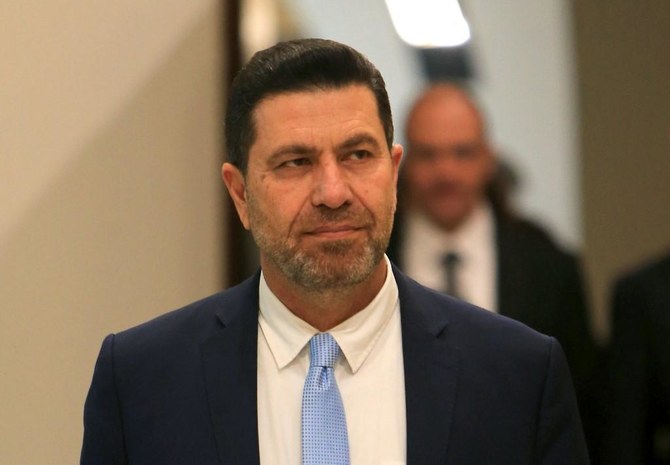BEIRUT: There will be “disastrous consequences” for Lebanon if a crucial fuel subsidy is not approved, the country’s energy minister warned on Thursday.
Lawmakers are meeting on Friday for a parliamentary session and one of the agenda items is to agree on subsidizing the national electricity company, Electricite du Liban (EDL), in order to buy fuel and provide electricity.
After meeting with President Michel Aoun on Thursday, the energy minister sounded the alarm.
“Lebanon may go into total darkness by the end of this month if the EDL is not subsidized to buy the fuel,” warned Raymond Ghajar. “This will cause disastrous consequences for various sectors, especially health and hospitalization, in light of the current epidemiological conditions resulting from the COVID-19 pandemic. Global darkness will also affect food, security and public safety, as well as on the telecommunications and internet sector.”
He said that approving a contribution was required and not an advance.
“The problem today is that we used about LBP700 billion ($464.34 million) from the 2020 budget out of LBP1,500 billion. We had about LBP300 billion remaining, which was used during the past three months to buy fuel.”
Another item for parliamentary discussion is a proposed raise for members of the armed services and security forces, causing controversy and anger among unions and other public sector workers.
MP Ali Hassan Khalil proposed an expedited law to be submitted to the parliamentary session that includes financially supporting all officers and members of the security and military forces, granting them LBP1 million a month over the course of six months.
The number of soldiers affected by the proposal is around 120,000.
Initial estimates indicate that the proposed raise requires roughly LBP800 billion, which would mean printing more money and increasing inflation to new record levels.
Retired soldiers, who are at the heart of current street protests, rejected the proposal because it excluded them.
A member of the Parliamentary Finance and Budget Committee, Nicolas Nahas, described Khalil’s proposal as a “political absurdity.”
Trade unionists representing public sector employees, who will be striking on Friday, were surprised that the financial support proposal did not include civil employees “who were suffering just as much as the military.”
There are around 200,000 employees in the public sector, from teachers, to employees in ministries, public administration, municipalities and public institutions.
The proposal irritated the healthcare sector which, in turn, demanded its share in any financial support increase because employees in this sector had been on the COVID-19 frontline for more than a year.
It provoked the judiciary as well. One lawmaker remarked: “Judges began resigning to emigrate in the absence of incentives for them to keep their jobs.”
The tricky parliamentary meeting and the energy minister’s warning came as the international community expressed “concern and consternation” about the crises facing Lebanon and its delay in forming a government.
The International Support Group for Lebanon (ISG), which brings together the UN and the governments of China, France, Germany, Italy, the Russian Federation, the UK and the US, together with the EU and the Arab League, published a statement voicing its concern about the “acceleration” of the economic and social crisis in Lebanon and the increase in tensions, including recent protests.
It called for demonstrations to remain peaceful and for human rights to remain protected, and for “full accountability and justice to be served, through credible, transparent and swift investigations of the Beirut port explosion and the killing of Lokman Slim.”
It recalled “with consternation” that seven months had elapsed since the resignation of the last government, inhibiting Lebanon’s ability to address its “deepening and increasingly complex” challenges and meet people’s needs and aspirations.
The ISG urged Lebanon’s leaders to stop delaying the formation of a government capable of meeting the country’s needs and implementing critical reforms.






















